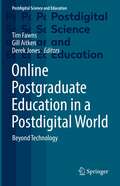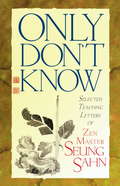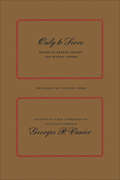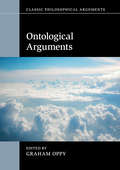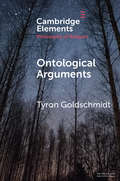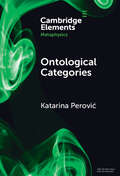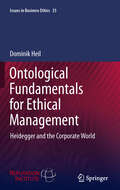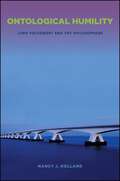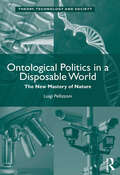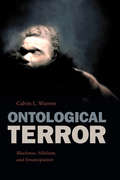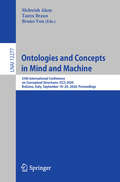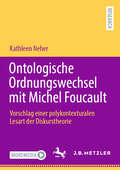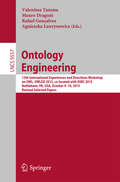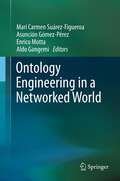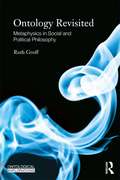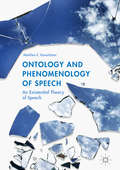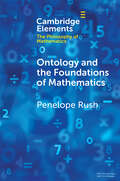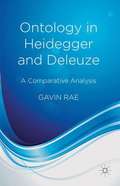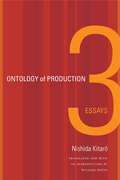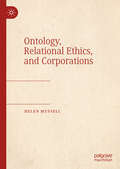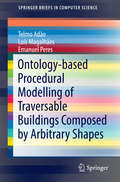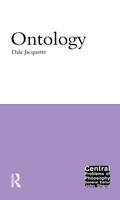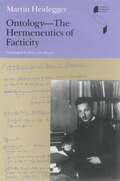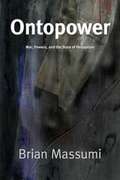- Table View
- List View
Online Postgraduate Education in a Postdigital World: Beyond Technology (Postdigital Science and Education)
by Derek Jones Gill Aitken Tim FawnsThis edited volume builds upon the premise that online learning is not separate from the social and material world, and is made up of embodied, socially-meaningful experiences. It is founded on a “postdigital” perspective in which, much more than interactions with keyboards, computer screens, hardware or software, the learning that happens on online postgraduate programmes spills out into professional and informal settings, making connections with what comes before and after any formally-scheduled tasks. Unlike other books relating to online education, this book combines a theoretical perspective, in which the digital, physical and social are all interconnected within complex educational ecologies, with a focus grounded in postgraduate practice. This focus has important implications for the kinds of students and learning that are explored in the chapters of the book. This book provides an important contribution to the knowledge of what is required to produce quality, online postgraduate programmes at the level of teachers, curriculum designers, faculty developers and policy-makers.
Only A Trillion
by Isaac AsimovA trillion seconds is equal to 31,700 years.A trillion inches is equal to 15,800,000 miles.In other words, a trillion seconds ago, Stone Age man lived in caves, and mastodons roamed Europe and North America.Or, a trillion-inch journey will carry you 600 times around the Earth, and leave more than enough distance to carry you to the moon and back.And yet a good part of the chapters that follow ought to show you quite plainly that even a trillion can become a laughably small figure in the proper circumstances.Isaac Asimov is curious about nearly everything, and he has made it his business to share whatever he learns with us--there are few people as good at it as he is.ONLY A TRILLION is only one example of the range of his talents and the depth of his knowledge. These twelve essays are on such diverse subjects as life on other planets, the famous Thiotimoline--and The Goose That Laid The Golden Eggs...but you're just going to have to buy this book to find out what he knows about that.
Only Don't Know
by Seung Sahn<p>Here is the inimitable Zen Master Seung Sahn up close and personal—in selections from the correspondence that was one of his primary modes of teaching. <p>Seung Sahn received hundreds of letters per month, each of which he answered personally, and some of the best of which are included here. His frank and funny style, familiar to readers of Dropping Ashes on the Buddha, is seen here in a most intimate form. <p>The beloved Zen master not only answers questions on Zen teaching and practice, but applies an enlightened approach to problems with work, relationships, suffering, and the teacher-student relationship.
Only to Serve: Selections from Addresses of Governor-General Georges P. Vanier
by George Cowley Georges Vanier Michel VanierCollected in this volume are selections from addresses by His Excellency, General Georges P. Vanier, one of the most eminent public figures of Canada. His broad interests and deep involvement in all aspects of Canadian life are reflected in these speeches. A life-long concern with the importance of the family is evident in his opening talk at the Canadian Conference on the Family in 1964: "...the best and surest way of developing generous and idealistic hearts, of giving the community men and women who are well-balanced and conscious of their responsibilities to their country, is to protect the family, for the family...is capable of giving to the universe the human beings who are prepared to put justice and truth before their own personal interests." From this conference emerged the Vanier Institute of the Family.Closely allied to the Governor-General's dedication to the family was his interest in the youth of the country. During his time of office he strove continually to bring Canadians to a fuller realization of the importance of their young people: "Tell me the character of a nation's young people and I will tell you the future of the nation."The book also includes the core of the Governor General's statements on education, reflections that have special meaning for every teacher and educator in Canada. His views on public life and on the democratic ideal, and his great desire for better understanding between English and French Canadians and for the essential unity of the Canadian nation, also hold a place of prominence in these excerpts.The final section of the book is devoted to his intense concern for the spiritual side of man's existence, for the ideals and values that set man apart and allow him to hope for a better world.Dr Wilder Penfield, head of the Vanier Institute of the Family, who was a close friend of the Governor General, and Claude Ryan, editor of Le Devoir, have written forewords for the volume.
Ontological Arguments (Classic Philosophical Arguments)
by Graham OppyOntological arguments are one of the main classes of arguments for the existence of God, and have been influential from the Middle Ages right up until the present time. This accessible volume offers a comprehensive survey and assessment of them, starting with a sequence of chapters charting their history - from Anselm and Aquinas, via Descartes, Leibniz, Kant and Hegel, to Gödel, Plantinga, Lewis and Tichý. This is followed by chapters on the most important topics to have emerged in the discussion of ontological arguments: the relationship between conceivability and possibility, the charge that ontological arguments beg the question, and the nature of existence. The volume as a whole shows clearly how these arguments emerged and developed, how we should think about them, and why they remain important today.
Ontological Arguments (Elements in the Philosophy of Religion)
by Tyron GoldschmidtProving the existence of God is a perennial philosophical ambition. An armchair proof would be the jackpot. Ontological arguments promise as much. This Element studies the most famous ontological arguments from Anselm, Descartes, Plantinga, and others besides. While the verdict is that ontological arguments don't work, they get us entangled in fun philosophical puzzles, from philosophy of religion to philosophy of language, from metaphysics to ethics, and beyond.
Ontological Categories: A Methodological Guide (Elements in Metaphysics)
by Katarina PerovicOntology – the study of the most fundamental categories of being – lies at the very heart of metaphysics. The reason why it appears to be so central is because it takes on the following questions: What sorts of entities are there? What features do those entities have? How do they relate to one another? And so on. Section 1 of this Element presents a fast-paced historical overview of some of the notable approaches to these questions. Section 2 tells the story of how one of the oldest, most disputed, but also most developed ontological categories – universals – got introduced. Section 3 builds on the discussion of universals as it considers the desiderata for a promising system of ontological categories. And Section 4 looks at ways in which philosophers might break with tradition and explore some new ontological categories.
Ontological Fundamentals for Ethical Management: Heidegger and the Corporate World
by Dominik HeilThe book develops a philosophical foundation to the field of management education using the work of Martin Heidegger as a guiding philosophy. It asks the questions 'what is a corporation?' and 'what is corporate management?' These two questions are foundational for management thought in general and management ethics in particular. Most other academic fields are in some way defined and guided by a philosophical discourse. This philosophical discourse is largely missing in the field of management thought and education. Without this foundation it can never be clear what actually belongs into a certain academic discipline and what does not. It also therefore lacks a sound and well articulated ontological foundation critical for developing approaches to ethical management. This book seeks to fill this gap and consequently represents an interdisciplinary effort between the academic field of management/business administration and philosophy, which is vital for business ethics. Intended as required reading for an elective on philosophy of management that is offered annually at the Wits Business School / University of the Witwatersrand / Johannesburg. The structure of the course will be largely based on the structure of the book.
Ontological Humility: Lord Voldemort and the Philosophers
by Nancy J. HollandNeither self-effacing modesty nor religious meekness, ontological humility is a moral and philosophical attitude toward transcendence—the unknown and unknowable background of existence—and a recognition and awareness of the contingency and chance that influence the course of our lives. It is a concept that Nancy J. Holland finds both throughout the history of philosophy and across the volumes of J. K. Rowling's Harry Potter series. Tracing it through the philosophical thought of figures ranging from Descartes, Hume, and Kant to Heidegger, Beauvoir, Merleau-Ponty, and Derrida, Holland uses the Harry Potter saga as a guide to illustrate the concept, revealing a whole set of ethical imperatives. Connecting the concept to contemporary gender and race theory, she demonstrates its implications both for our understanding of the philosophical tradition and for the way we live our own lives.
Ontological Politics in a Disposable World: The New Mastery of Nature (Theory, Technology And Society Ser.)
by Luigi PellizzoniThis book explores the intertwining of politics and ontology, shedding light on the ways in which, as our ability to investigate, regulate, appropriate, ’enhance’ and destroy material reality have developed, so new social scientific accounts of nature and our relationship with it have emerged, together with new forms of power. Engaging with cutting-edge social theory and elaborating on the thought of Foucault, Heidegger, Adorno and Agamben, the author demonstrates that the convergence of ontology with politics is not simply an intellectual endeavour of growing import, but also a governmental practice which builds upon neoliberal programmes, the renewed accumulation of capital and the development of technosciences in areas such as climate change, geoengineering and biotechnology. With shifts in our accounts of nature have come new means of mastering it, giving rise to unprecedented forms of exploitation and destruction - with related forms of social domination. In the light of growing social inequalities, environmental degradation and resource appropriation and commodification, Ontological Politics in a Disposable World: The New Mastery of Nature reveals the need for new critical frameworks and oppositional practices, to challenge the rationality of government that lies behind these developments: a rationality that thrives on indeterminacy and an account of materiality as comprised of fluid, ever-changing states, simultaneously agential and pliable, to which social theory increasingly subscribes without questioning enough its underpinnings and implications. A theoretically sophisticated reassessment of the relationship between ontology and politics, which draws the contours of a renewed humanism to allow for a more harmonious relationship with the world, this book will appeal to scholars in social and political theory, environmental sociology, geography, science and technology studies and contemporary European thought on the material world.
Ontological Terror: Blackness, Nihilism, and Emancipation
by Calvin L. WarrenIn Ontological Terror Calvin L. Warren intervenes in Afro-pessimism, Heideggerian metaphysics, and black humanist philosophy by positing that the "Negro question" is intimately imbricated with questions of Being. Warren uses the figure of the antebellum free black as a philosophical paradigm for thinking through the tensions between blackness and Being. He illustrates how blacks embody a metaphysical nothing. This nothingness serves as a destabilizing presence and force as well as that which whiteness defines itself against. Thus, the function of blackness as giving form to nothing presents a terrifying problem for whites: they need blacks to affirm their existence, even as they despise the nothingness they represent. By pointing out how all humanism is based on investing blackness with nonbeing—a logic which reproduces antiblack violence and precludes any realization of equality, justice, and recognition for blacks—Warren urges the removal of the human from its metaphysical pedestal and the exploration of ways of existing that are not predicated on a grounding in being.
Ontologies and Concepts in Mind and Machine: 25th International Conference on Conceptual Structures, ICCS 2020, Bolzano, Italy, September 18–20, 2020, Proceedings (Lecture Notes in Computer Science #12277)
by Mehwish Alam Tanya Braun Bruno YunThis book constitutes the proceedings of the 25th International Conference on Conceptual Structures, ICCS 2020, held in Bolzano, Italy, in September 2020.* The 10 full papers, 5 short papers and 1 poster paper presented were carefully reviewed and selected from 24 submissions. The proceedings also include two keynotes and two tutorials. The papers focus on the representation of and reasoning with conceptual structures in a variety of contexts. The topics of this year's conference range from formal concept analysis to decision making, from machine learning to natural language processing. *The conference was held virtually due to the COVID-19 pandemic.
Ontologische Ordnungswechsel mit Michel Foucault: Vorschlag einer polykontexturalen Lesart der Diskurstheorie
by Kathleen NeherOrdnung muss behauptet werden, um sie untersuchen zu können. Dass jedoch keine Ordnung ohne den Verweis auf ihr Komplement zu haben ist, bemerkte schon Foucault im Rahmen seiner Diskurstheorie. In dem Moment, in dem das ordnende Subjekt in Zusammenhang mit der Unruhe des wissenschaftlichen Diskurses gebracht wird, erklärt auch Foucault sich selbst zum Problem. Jenes onto-epistemologische Problem, welchem sich kaum eine noch so methodisch kontrollierte Wissenschaft entziehen kann, lässt die Autorin im Rahmen eines Theoriedialoges nunmehr erneut verhandeln. Darin werden Theoriefiguren aus den Laws of Form George Spencer-Browns und der Polykontexturalitätstheorie Gotthard Günthers aufgegriffen, im Hinblick auf ihren methodologischen Wert diskutiert und im Rahmen einer (onto)logischen Untersuchung der Theoriegenese Foucaults zur Anwendung gebracht. Im Ergebnis wird eine polykontexturale Lesart der Diskurstheorie vorgeschlagen: Ordnung bleibt darin keine bloße Behauptung, vielmehr wird sie zur Reflexionsform, innerhalb derer ontologische Ordnungswechsel methodologisch möglich werden.
Ontology Engineering
by Valentina Tamma Mauro Dragoni Rafael Gonçalves Agnieszka ŁawrynowiczThis book constitutes the thoroughly refereed post-workshop proceedings of the 12th OWL: Experiences and Directions Workshop, OWLED 2015, held in Bethlehem, PA, USA, in October 2015, co-located with ISWC 2015, the International Semantic Web Conference. The 18 revised papers presented were carefully reviewed and selected from 35 initial submissions. Bridging the gap between ontology engineering practices and software engineering, the papers describe reuse methods employed throughout the ontology development cycle; modeling / terminological decisions, alignment and comparison between ontologies, how ontologies are stored, versioned, distributed, and consumed over the Web.
Ontology Engineering in a Networked World
by Aldo Gangemi Asunción Gómez-Pérez Enrico Motta Mari Carmen Suárez-FigueroaThe Semantic Web is characterized by the existence of a very large number of distributed semantic resources, which together define a network of ontologies. These ontologies in turn are interlinked through a variety of different meta-relationships such as versioning, inclusion, and many more. This scenario is radically different from the relatively narrow contexts in which ontologies have been traditionally developed and applied, and thus calls for new methods and tools to effectively support the development of novel network-oriented semantic applications. This book by Suárez-Figueroa et al. provides the necessary methodological and technological support for the development and use of ontology networks, which ontology developers need in this distributed environment. After an introduction, in its second part the authors describe the NeOn Methodology framework. The book's third part details the key activities relevant to the ontology engineering life cycle. For each activity, a general introduction, methodological guidelines, and practical examples are provided. The fourth part then presents a detailed overview of the NeOn Toolkit and its plug-ins. Lastly, case studies from the pharmaceutical and the fishery domain round out the work. The book primarily addresses two main audiences: students (and their lecturers) who need a textbook for advanced undergraduate or graduate courses on ontology engineering, and practitioners who need to develop ontologies in particular or Semantic Web-based applications in general. Its educational value is maximized by its structured approach to explaining guidelines and combining them with case studies and numerous examples. The description of the open source NeOn Toolkit provides an additional asset, as it allows readers to easily evaluate and apply the ideas presented.
Ontology Revisited: Metaphysics in Social and Political Philosophy
by Ruth GroffGroff's argument runs counter to the familiar anti-metaphysical habit. Social and political philosophy, she maintains, is not as metaphysically neutral as it may seem. Even the most deontological of theories connects up with an attendant set of philosophical commitments regarding what kinds of things exist, as a fundamental ontological matter, and what they are like. These are topics of interest not just to social and political philosophers, but to social scientists and to philosophers of social science as well. "Ruth Groff has broken new ground in demonstrating the connection between social and political thought and the ontology of causal powers. Her account of the structure of Humean thinking about agency is excellent. Especially significant is the role that she assigns to Kantianism in the analysis that she develops. She moves effortlessly between contemporary metaphysics, political theory, critical social theory, and the history of modern philosophy, offering trenchant insights along the way into the work of thinkers ranging from Hume himself to Mill, Adorno, and Martha Nussbaum, and into debates over agent causation and emergence. There is even a discussion, in the final chapter, of Spinoza. This is big-picture philosophy at its best: rigorous and exacting at the level of detail; original, compelling and systematic in the whole." - Stephen Mumford, Professor of Metaphysics and Dean of the Faculty of Arts, University of Nottingham
Ontology and Phenomenology of Speech: An Existential Theory of Speech
by Marklen E. KonurbaevThis book applies phenomenological methodology to examine the transformations of messages as they pass from the mind to the linear world of human speech, and then back again. Rapid development of linguistic science in the second half of the 20th century, and cognitive science in the beginning of the 21st century has brought us through various stages of natural human language analysis and comprehension – from deep structures, transformational grammar and behaviorism to cognitive linguistics, theory of encapsulation, and mentalism. Thus, drawing upon new developments in cognitive science, philosophy and hermeneutics, the author reveals how to obtain the real vision of life lurking behind the spoken word. Applying methodology introduced by Edmund Husserl and developed by Martin Heidegger, the author examines how we can see the ‘living’ and dynamic essence of speech hidden in the world of linear linguistic strings and casual utterances. This uniquely researched work will be a valuable resource for students and scholars of cognitive stylistics, pragmatics and the psychology of language.
Ontology and the Foundations of Mathematics: Talking Past Each Other (Elements in the Philosophy of Mathematics)
by Penelope RushThis Element looks at the problem of inter-translation between mathematical realism and anti-realism and argues that so far as realism is inter-translatable with anti-realism, there is a burden on the realist to show how her posited reality differs from that of the anti-realist. It also argues that an effective defence of just such a difference needs a commitment to the independence of mathematical reality, which in turn involves a commitment to the ontological access problem – the problem of how knowable mathematical truths are identifiable with a reality independent of us as knowers. Specifically, if the only access problem acknowledged is the epistemological problem – i.e. the problem of how we come to know mathematical truths – then nothing is gained by the realist notion of an independent reality and in effect, nothing distinguishes realism from anti-realism in mathematics.
Ontology in Heidegger and Deleuze
by Gavin RaeThe first book in English to offer an extended comparative analysis of Heidegger and Deleuze. Those familiar with Heidegger's and Deleuze's thinking will find a detailed, well-researched book that comes to an innovative conclusion, while those new to both will find a clear, well-written exposition of their key concepts.
Ontology of Production: Three Essays
by Harry Harootunian William Haver Kitarō Nishida KitaroOntology of Production presents three essays by the influential Japanese philosopher Nishida Kitarō (1870-1945), translated for the first time into English by William Haver. While previous translations of his writings have framed Nishida within Asian or Oriental philosophical traditions, Haver's introduction and approach to the texts rightly situate the work within Nishida's own commitment to Western philosophy. In particular, Haver focuses on Nishida's sustained and rigorous engagement with Marx's conception of production.Agreeing with Marx that ontology is production and production is ontology, Nishida in these three essays--"Expressive Activity" (1925), "The Standpoint of Active Intuition" (1935), and "Human Being" (1938)--addresses sense and reason, language and thought, intuition and appropriation, ultimately arguing that in this concept of production, ideality and materiality are neither mutually exclusive nor oppositional but, rather, coimmanent. Nishida's forceful articulation of the radical nature of Marx's theory of production is, Haver contends, particularly timely in today's speculation-driven global economy. Nishida's reading of Marx, which points to the inseparability of immaterial intellectual labor and material manual labor, provokes a reconsideration of Marxism's utility for making sense of--and resisting--the logic of contemporary capitalism.
Ontology, Relational Ethics, and Corporations
by Helen MussellThis book offers a unique exploration and analysis of social responsibility and associated ethical concepts used by business and financial organizations. Mussell lays out the argument that a realist analysis of social responsibility reveals caring relations underpinning this ethical behavior. The combination of a realist social ontology with contemporary relational care ethics provides the theoretical framework needed to successfully explore the ethics of social responsibility. She then applies this realist caring relations argument to three specific contexts in which social responsibility is explicitly evident - including corporate social responsibility, socially responsible investment, and the legal concept of the fiduciary. By tracing the historical development of each concept – including how economic methodology has influenced interpretations and practice – a complex picture emerges, showing how ethics, economic theory, and political theory intersect. This is an insightful work of philosophically informed contemporary political economy, analyzing the evolution and connection of key ethical concepts widely used by organizations.
Ontology-based Procedural Modelling of Traversable Buildings Composed by Arbitrary Shapes
by Telmo Adão Luís Magalhães Emanuel PeresThis book presents a new procedural modelling methodology capable of producing traversable buildings constrained by arbitrary convex shapes, based on a pure treemap approach. The authors establish a process to change the format of interior rooms, through wall number modification and offer an adaptation of a "fake-concave" technique to support non-convex building layouts. It will also include: * A proposal for an extensible building ontology to guide the methodology process and support the generation of other architectural style buildings (e. g. roman houses); * A presentation of an ontology-based grammar to provide the procedural modelling methodology with production rules; * Experimental computer managed processes for the stochastic generation of buildings. Most of the existing solutions regarding building interiors only focus on the generation of floor plans mainly composed of rectangular shapes. Yet there are a wide variety of ancient and contemporary buildings that are composed of shapes other than rectangles, both internally and externally. Ontology-based Traversable Buildings Composed by Arbitrary Shapes will address this by providing the Procedural Modelling field with processes and techniques capable of properly supporting for example, digital preservation of cultural heritage or extensive virtual urban environment productions, specifically ones involving the generation/reconstruction of virtual buildings with such geometric requirements.
Ontology: Ontology (Central Problems Of Philosophy Ser. #7)
by Dale JacquetteThe philosophical study of what exists and what it means for something to exist is one of the core concerns of metaphysics. This introduction to ontology provides readers with a comprehensive account of the central ideas of the subject of being. This book is divided into two parts. The first part explores questions of pure philosophical ontology: what is meant by the concept of being, why there exists something rather than nothing, and why there is only one logically contingent actual world. Dale Jacquette shows how logic provides the only possible answers to these fundamental problems. The second part of the book examines issues of applied scientific ontology. Jacquette offers a critical survey of some of the most influential traditional ontologies, such as the distinction between appearance and reality, and the categories of substance and transcendence. The ontology of physical entities - space, time, matter and causation - is examined as well as the ontology of abstract entities such as sets, numbers, properties, relations and propositions. The special problems posed by the subjectivity of mind and of postulating a god are also explored in detail. The final chapter examines the ontology of culture, language and art.
Ontology—The Hermeneutics of Facticity (Studies in Continental Thought)
by Martin HeideggerThis probing analysis of the history of ontology is “of enormous significance for students of the development of Heidegger’s early thought” (Daniel O. Dahlstrom Boston University).First published in 1988, Ontology—The Hermeneutics of Facticity is the text of Heidegger’s lecture course at the University of Freiburg during the summer of 1923. In these lectures, Heidegger reviews and makes critical appropriations of the hermeneutic tradition from Plato, Aristotle, and Augustine to Schleiermacher and Dilthey. Through this critical survey, he reformulates the question of being on the basis of facticity and the everyday world.Specific themes deal with the history of ontology, the development of phenomenology and its relation to Hegelian dialectic, traditional theological and philosophical concepts of man, the present situation of philosophy, and the influences of Aristotle, Luther, Kierkegaard, and Husserl on Heidegger’s thinking. Students of Heidegger will find initial breakthroughs in his unique elaboration of the meaning of human experience and the “question of being,” which received mature expression in Being and Time.
Ontopower: War, Powers, and the State of Perception
by Brian MassumiColor coded terror alerts, invasion, drone war, rampant surveillance: all manifestations of the type of new power Brian Massumi theorizes in Ontopower. Through an in-depth examination of the War on Terror and the culture of crisis, Massumi identifies the emergence of preemption, which he characterizes as the operative logic of our time. Security threats, regardless of the existence of credible intelligence, are now felt into reality. Whereas nations once waited for a clear and present danger to emerge before using force, a threat's felt reality now demands launching a preemptive strike. Power refocuses on what may emerge, as that potential presents itself to feeling. This affective logic of potential washes back from the war front to become the dominant mode of power on the home front as well. This is ontopower--the mode of power embodying the logic of preemption across the full spectrum of force, from the "hard" (military intervention) to the "soft" (surveillance). With Ontopower, Massumi provides an original theory of power that explains not only current practices of war but the culture of insecurity permeating our contemporary neoliberal condition.
